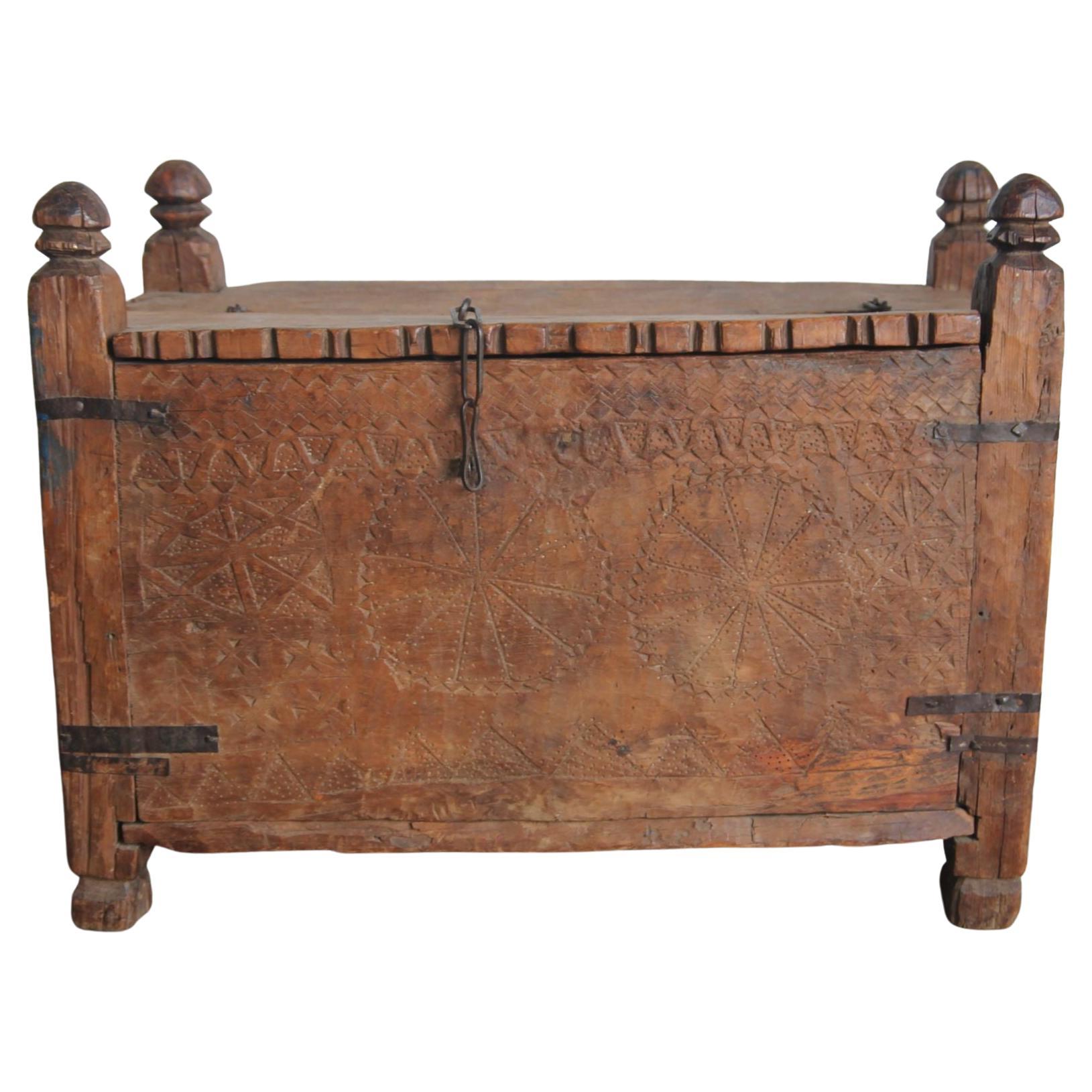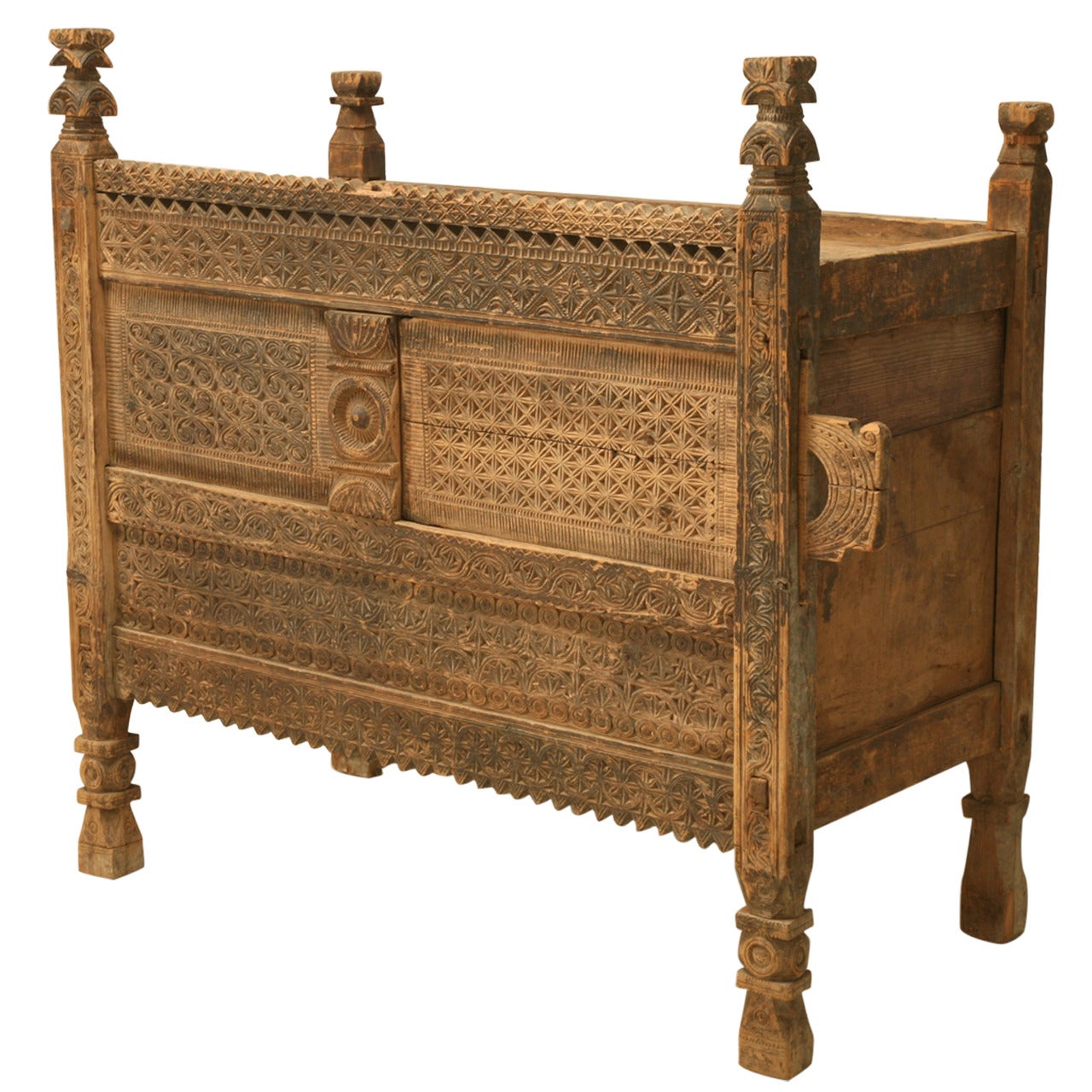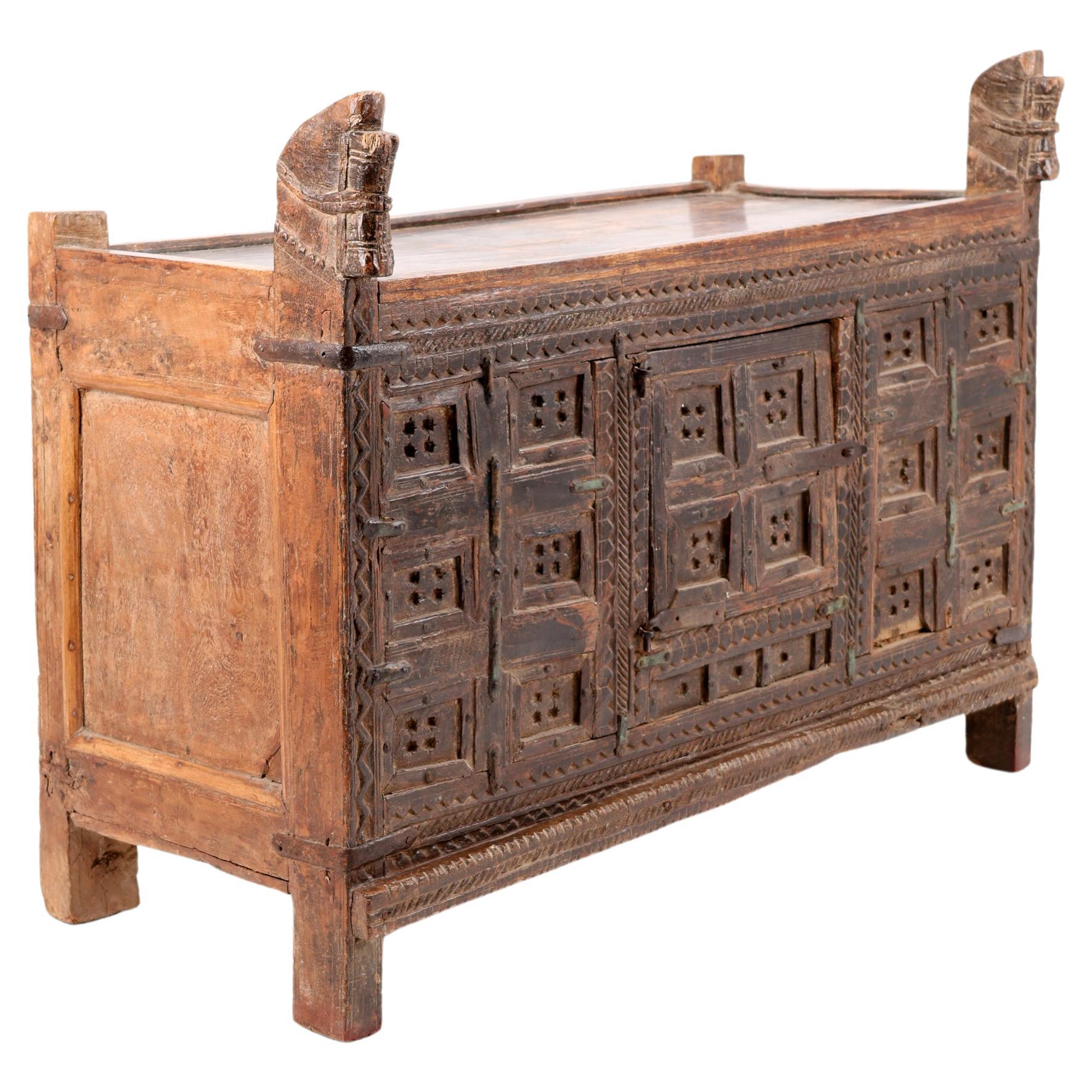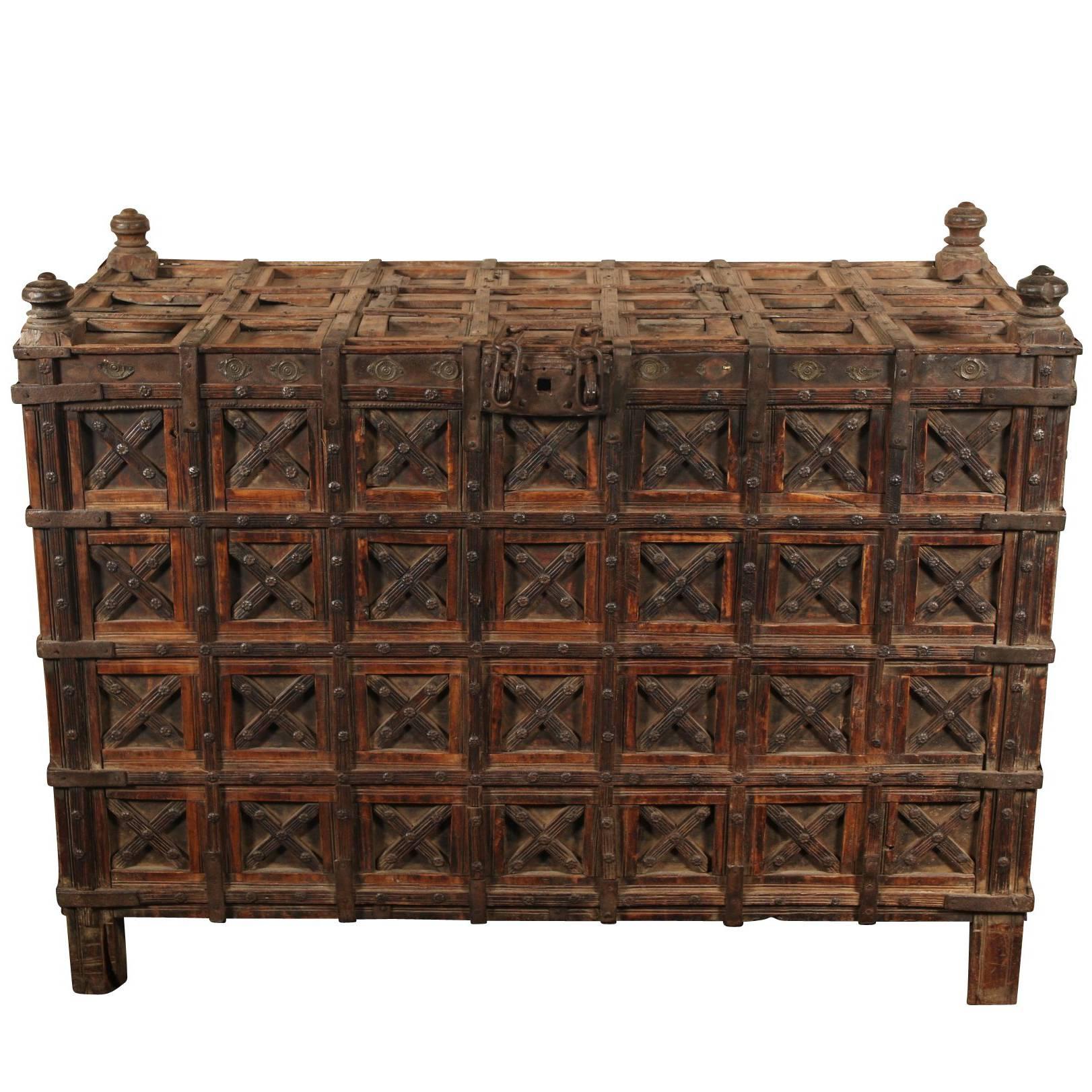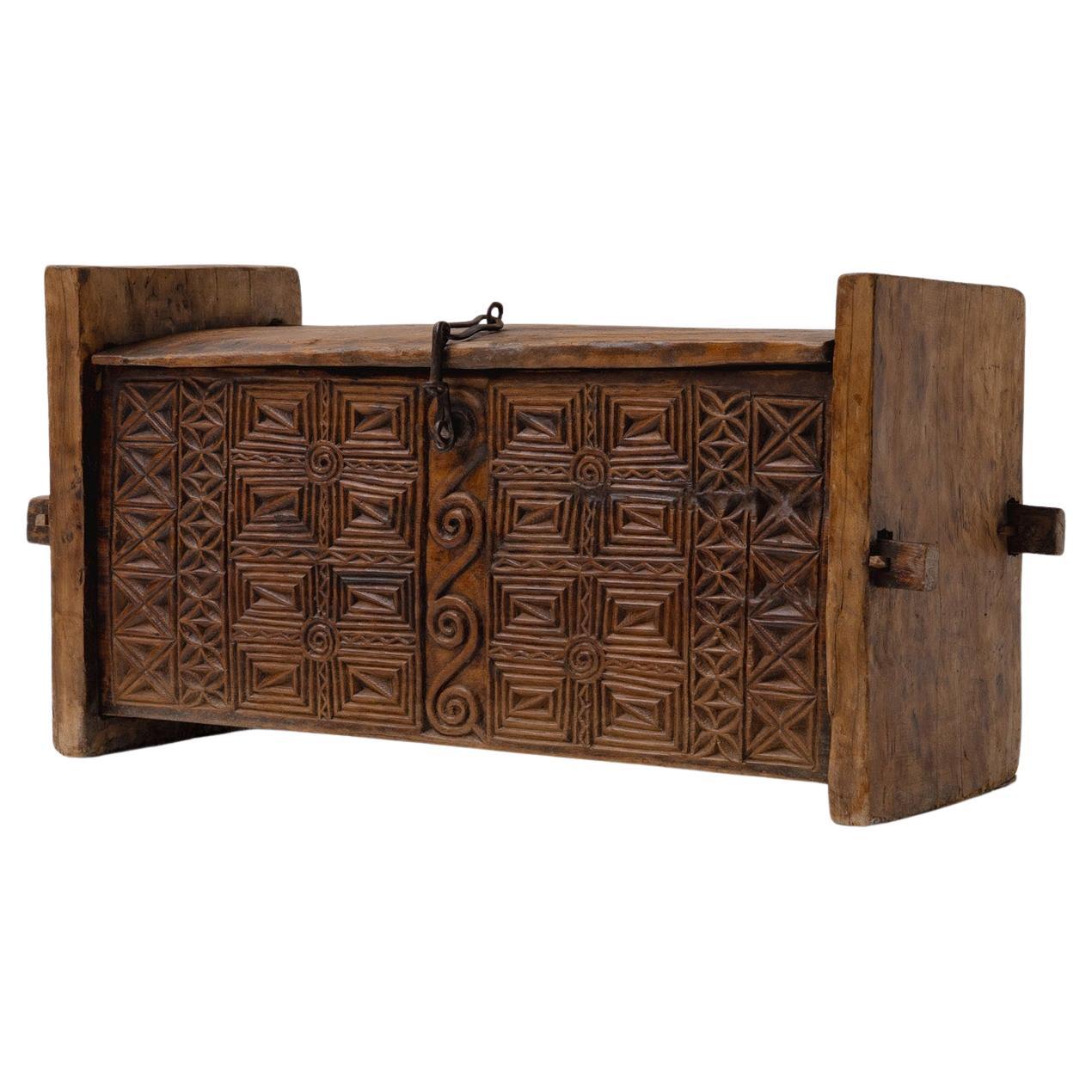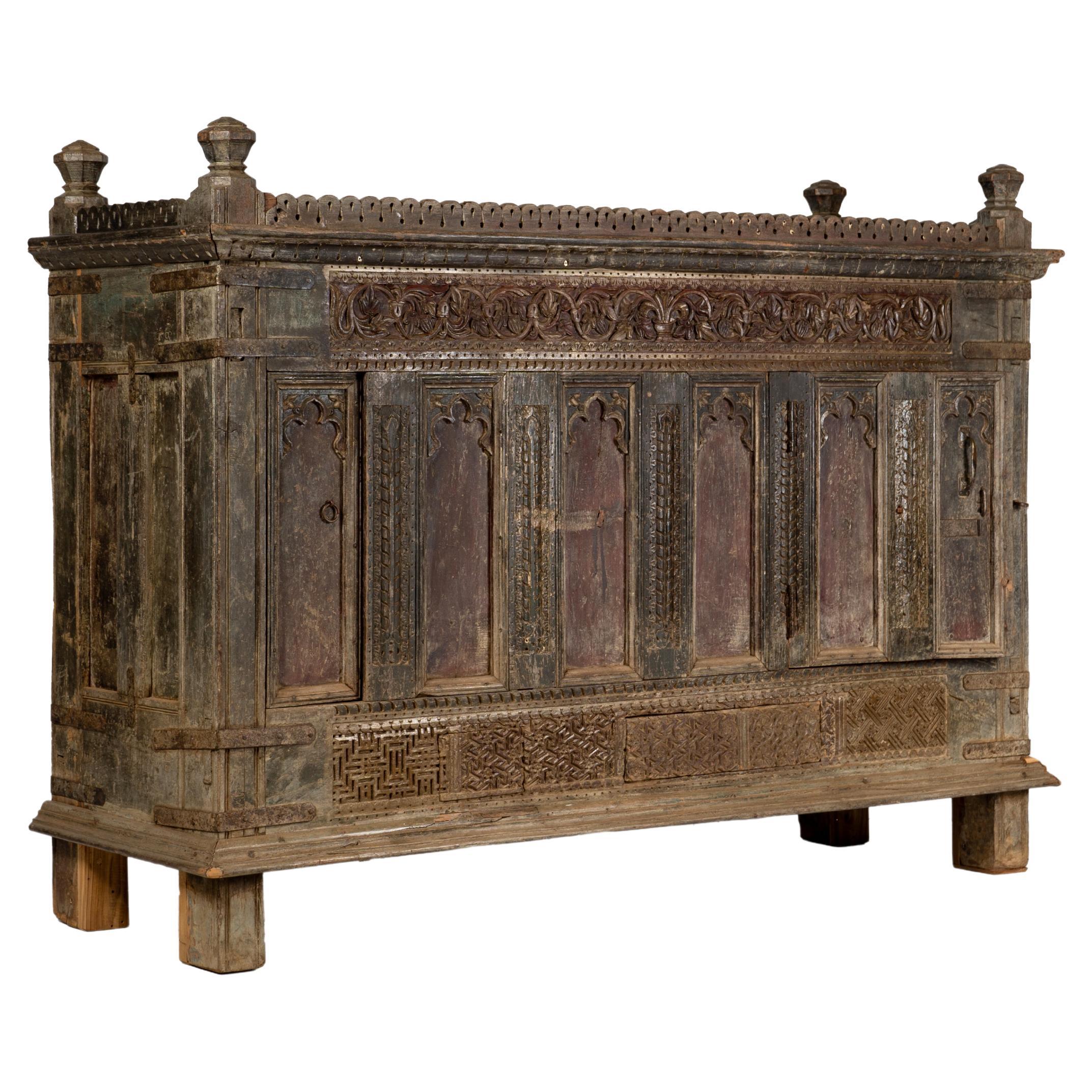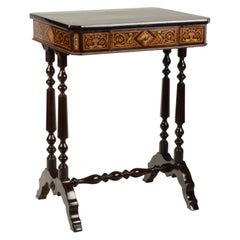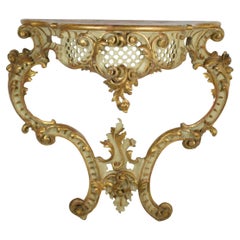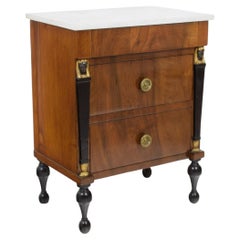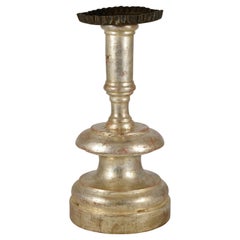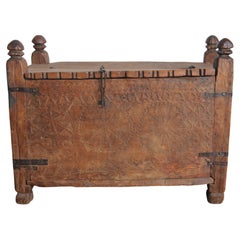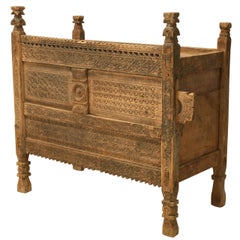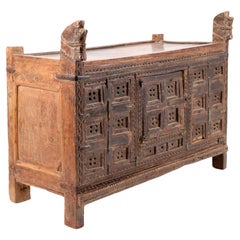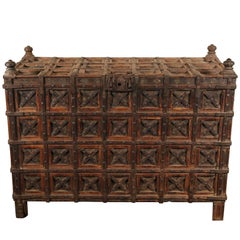Items Similar to Antique Hand-Carved Swat Chest from Pakistan
Want more images or videos?
Request additional images or videos from the seller
1 of 14
Antique Hand-Carved Swat Chest from Pakistan
$3,884.45
£2,887.26
€3,270
CA$5,391.83
A$6,048.62
CHF 3,127.31
MX$72,949.64
NOK 39,785.98
SEK 37,263.35
DKK 24,893.34
About the Item
Swat, Pakistan
Period: mid-19th century
Entirely hand carved
Interlocking structure no gluing
Very good condition
Measurements: cm W113 x D59 x H121.5 cm.
- Dimensions:Height: 47.84 in (121.5 cm)Width: 44.49 in (113 cm)Depth: 23.23 in (59 cm)
- Materials and Techniques:
- Place of Origin:Pakistan
- Period:
- Date of Manufacture:circa 1850
- Condition:
- Seller Location:Prato, IT
- Reference Number:1stDibs: LU5715223782572
About the Seller
5.0
Vetted Professional Seller
Every seller passes strict standards for authenticity and reliability
Established in 1965
1stDibs seller since 2021
17 sales on 1stDibs
Typical response time: 1 hour
- ShippingRetrieving quote...Shipping from: Prato, Italy
- Return Policy
Authenticity Guarantee
In the unlikely event there’s an issue with an item’s authenticity, contact us within 1 year for a full refund. DetailsMoney-Back Guarantee
If your item is not as described, is damaged in transit, or does not arrive, contact us within 7 days for a full refund. Details24-Hour Cancellation
You have a 24-hour grace period in which to reconsider your purchase, with no questions asked.Vetted Professional Sellers
Our world-class sellers must adhere to strict standards for service and quality, maintaining the integrity of our listings.Price-Match Guarantee
If you find that a seller listed the same item for a lower price elsewhere, we’ll match it.Trusted Global Delivery
Our best-in-class carrier network provides specialized shipping options worldwide, including custom delivery.More From This Seller
View AllWork Table, Florentine Cabinetry, circa 1850
By Fratelli Falcini
Located in Prato, IT
This table is characterized by the high quality of the decoration, a dense but orderly inlay, evident in the absolute precision in cutting and combination of the various materials (p...
Category
Antique Mid-19th Century Italian Other Tables
Materials
Mother-of-Pearl, Boxwood, Cherry, Ebony, Maple, Palisander, Rosewood
Italian Barocchetto Console, Genova, circa 1760
Located in Prato, IT
Lacquered and gilded pure gold
Faux marble top
Dimensions: cm W 110 x D 45 x H 101
Barocchetto Italiano (DAL 1720 AL 1780)
With the economic decline of the Italian aristocracy, the smaller proportions of Rococo furniture lent themselves to update the furnishings of the palace. Furniture was produced, mainly in the Veneto, with a typically Baroque formal layout, but with more minute proportions and more elegant decorative modules typical of Rococo furniture that did not contrast with the old Baroque scenographic furniture. This style, which spread throughout the peninsula, was called Italian Baroque. Venice, already renowned for its painted and lacquered furniture, was the center of the development of this style, where it lasted well beyond the mid-eighteenth century.
In addition to the Veneto, furniture in this style was built by the Genoese cabinetmakers heirs of Anton Maria Maragliano (1664 - 1739) and in Piedmont, where the productions of Luigi Prinotto (1706 - 1790) and Pietro Piffetti...
Category
Antique 1760s Italian Other Console Tables
Materials
Pine
19th Century Italian Empire Period Walnut Night Stand
Located in Prato, IT
Veneered in walnut, three drawers with black columns with caryatid head and pure gold base. Four ebonized turned legs.
Coeval Carrara marble top.
Very good condition.
Category
Antique Early 19th Century Italian Empire Night Stands
Materials
Carrara Marble
Florentine Candlestick in Lathed and Silvered Wood, Late 17th Century
Located in Prato, IT
Italy, Firenze, late 17th century
Simple but elegant typical Florentine candlestick.
It has cracks and small lacks of the pinstripe typical o...
Category
Antique Late 17th Century Italian Renaissance Candlesticks
Materials
Sheet Metal
Florentine Candlestick in Lathed and Silvered Wood, Late 17th Century
Located in Prato, IT
Italy, Firenze, late 17th century
Simple but elegant typical Florentine candlestick.
It has cracks and small lacks of the pinstripe typical o...
Category
Antique Late 17th Century Italian Renaissance Candlesticks
Materials
Sheet Metal
Italian Mid-19th Century Poplar Burl Bed
Located in Prato, IT
Piemonte, Italy, mid-19th century
In poplar, walnut and poplar burl.
Very good condition
Dimensions: 115 x 207 x 110 cm
Complete with mattress (Simmons...
Category
Antique Mid-19th Century European Louis Philippe Beds and Bed Frames
Materials
Poplar
You May Also Like
Swat Valley Hand Carved Chest
Located in Asbury Park, NJ
A great vintage hand carved chest from the Swat Valley. This turn of the century piece has carved symbols in the front and still retains its original chain...
Category
Antique Early 1900s Pakistani Rustic Blanket Chests
Materials
Wood
Swat Chest from the Swat Valley of Pakistan c1800's Original and Unrestored
Located in Chicago, IL
Beautifully hand-carved Swat Chest from the Swat Valley of Pakistan. We have had one at home for over 30 years and I had always thought they were Afghan, bu...
Category
Antique 1840s Pakistani Rustic Furniture
Materials
Wood
Late 19th century Indian softwood and iron-mounted dowry chest
Located in Stahnsdorf, DE
A late 19th Century Dowry Chest,
Softwood
India, Ca.1890
A late 19th century Indian softwood and iron-mounted dowry chest, fitted with a door.
Dimension:
Height 83cm,
Width 108cm...
Category
Antique 1890s Indian Industrial Commodes and Chests of Drawers
Materials
Softwood
$1,805 Sale Price
20% Off
Massive Antique Indian Carved Wood Dowry Chest
Located in Bridgeport, CT
The entire chest with framed square panels in three rows on the top, and four on the front, sides, and back. The front panels have added X form decorative pieces and all frames have ...
Category
Antique 19th Century Indian Rustic Blanket Chests
Materials
Iron
Antique Hand Carved Nuristani Storage Chest
Located in Aartselaar, BE
This antique chest is unique and beautiful, likely handmade in the Nuristan province of northeast Afghanistan. We estimate it to be crafted in the late 19th to early 20th century. It was built from wood using traditional wedged mortise and tenon joinery, indicating its origin. The front panel is richly adorned with hand-chiseled tribal motifs of stars and flowers.
The surface of the wood is beautifully textured. Its natural patina perfectly suits the wabi-sabi aesthetic—celebrating imperfection, timeworn beauty, and authenticity. The chest’s tribal design feels raw yet sophisticated, combining ancient craftsmanship with a timeless sense of modernity.
This handmade piece would integrate beautifully into a variety of interiors: it can ground a minimalist or contemporary space with its earthy authenticity, lend soulful warmth to a wabi-sabi-inspired room, and enrich eclectic, bohemian, or globally curated environments. Its strong, geometric lines and understated ornamentation make it highly adaptable, whether used as a statement entryway chest...
Category
Early 20th Century Afghan Tribal Blanket Chests
Materials
Steel
An Indian Wedding Chest
Located in Chicago, IL
This massive wooden wedding chest was made the earliest part of the 19th century in Gujarat, India. The chest originally contained dowry items (such as clothing and blankets) and was...
Category
Early 20th Century Indian Commodes and Chests of Drawers
Materials
Teak
$3,400 Sale Price
29% Off
More Ways To Browse
Antique Furniture Pakistan
Pakistan Antiques
Antique Cedar Chest
19th Century Cedar Chest
Swat Pakistan
Hand Carved Cedar Chest
Pakistani Cabinets
Pakistan Chest
Swat Chest
Sweden Sideboard
Locking Sideboard
Black Oak Sideboard
Vintage Black Door Handles
Solid Oak Sideboard Used
Antique French Server
Vintage Server Cabinet
Antique Dining Servers
Carved Italian Sideboard
